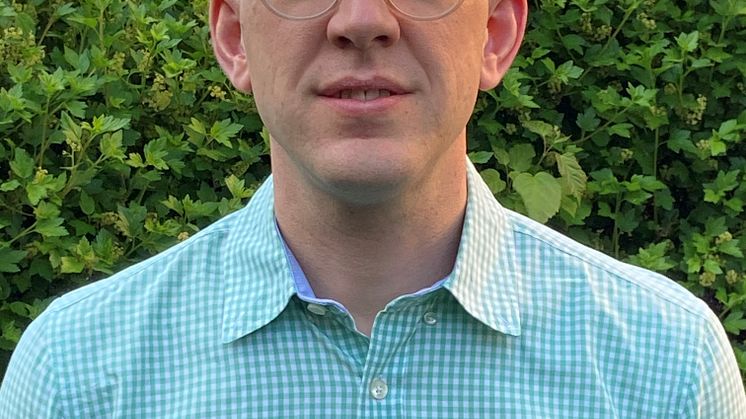Press release -
Gene variant influences risk for blood clots in covid patients
A gene variant in the natural immune system influences the risk for blood clots in the lungs of severely ill COVID-19 patients. This has been documented in a new study by researchers at Uppsala University and Karolinska Institutet that has now been published in Nature Immunology.
Peer-review/Experimental study/Data/statistical analysis
“With this study, we are a step closer in explaining why COVID-19 patients have a substantially increased risk of blood clots,” says Oskar Eriksson, medical doctor and researcher at Uppsala University and one of the article’s main authors.
It became apparent during the pandemic that patients with COVID-19 had a substantial increased risk of suffering blood clots, even when treated with blood thinners. Why COVID-19 leads to such a major activation of the blood’s coagulation system in some patients is not yet clear. Researchers at Uppsala University and Karolinska Institutet have now discovered that a gene variant, which regulates the levels of the protein mannose-binding lectin in the blood, has protects against blood clots in the lungs.
Mannose-binding lectin is part of the natural immune system. It discovers and eliminates cells infected by bacteria and viruses. Another recent study (Stravalaci et al. Nature Immunology volume 23, pages 275–286 (2022)) showed that mannose-binding lectin recognises the SARS-CoV-2 virus that causes COVID-19 and can neutralise cells infected with the virus.
“We can now show how mannose-binding lectin influences the course of the illness COVID-19. It is striking that it is the risk for blood clots that is impacted, and we could not see that mannose-binding lectin influences the risk of becoming ill with COVID-19. We can show that the immune system is important for blood clot formation in COVID-19 patients, something that was long suspected and that can explain why such high doses of blood thinners have been necessary,” says Oskar Eriksson.
“The large studies that have been presented in the last year have identified several gene variants that influence the risk of becoming severely ill from COVID-19. Our work shows that there is also a genetic background for which complications affect COVID-19 patients,” says Hugo Zeberg, medical doctor and researcher at Karolinska Institutet and co-responsible for the study.
Article: Hultström, M., Frithiof, R., Grip, J. et al. Genetic determinants of mannose-binding lectin activity predispose to thromboembolic complications in critical COVID-19. Nat Immunol (2022). https://doi.org/10.1038/s41590-022-01227-w
The research was co-funded by the Swedish Research Council, the Knut and Alice Wallenberg Foundation, the Swedish Heart Lung Foundation, the Swedish Society of Medicine, the Jeansson Foundations, and the Göran Gustafsson Foundation.
For more information, contact:
Oskar Eriksson, Medical Doctor and researcher at Department of Immunology, Genetics and Pathology at Uppsala University, oskar.eriksson@igp.uu.se, +46-70-796 11 84
Hugo Zeberg, Medical Doctor and Assistant Professor at Karolinska Institutet, hugo.zeberg@ki.se, +46-73-061 60 69
Topics
Categories
Uppsala University
The first University in Sweden. Quality, knowledge, and creativity since 1477. Education and research of the highest quality and relevance to society, business, and culture. Uppsala University is ranked among the world’s top higher education institutions. www.uu.se


